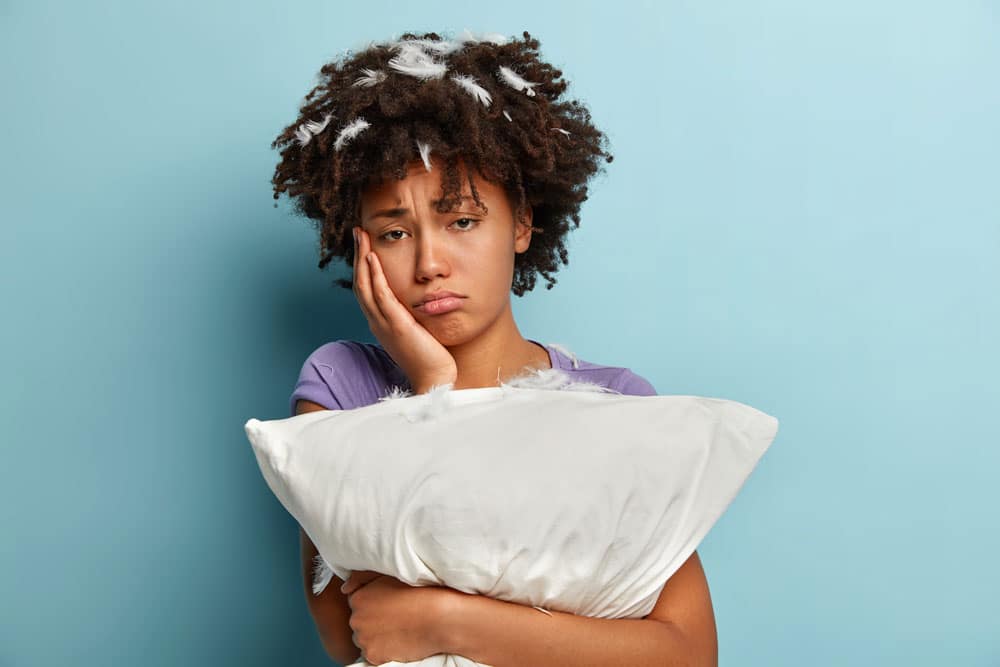Addressing Sleep Disorders Through Therapy
Sleep is essential for overall health and well-being, yet millions struggle with getting enough quality rest. From difficulty falling asleep to waking up frequently during the night, sleep disorders can take a toll on physical, emotional, and mental health. But how can you sleep better? Therapy offers a range of solutions to tackle sleep issues at their root, improving both rest and quality of life. In this article, we’ll explore common sleep problems, their impact on health, and how therapeutic interventions can help you achieve restful sleep.
Understanding Sleep Disorders and Their Causes
Sleep disorders come in many forms, including:
- Insomnia: Difficulty falling or staying asleep.
- Sleep Apnea: Breathing interruptions during sleep.
- Restless Leg Syndrome (RLS): Uncontrollable leg movements that disrupt sleep.
- Narcolepsy: Sudden sleep attacks during the day.
- Circadian Rhythm Disorders: Mismatches between natural sleep patterns and daily schedules.
Common Causes of Sleep Disorders
-
Stress and Anxiety
Racing thoughts and emotional tension can make it difficult to relax at bedtime, leading to sleep disruption.
-
Chronic Pain or Medical Issues
Physical discomfort from conditions like arthritis, fibromyalgia, or acid reflux often interferes with restful sleep.
-
Lifestyle Factors
Irregular sleep schedules, excessive screen time, caffeine consumption, or lack of physical activity disrupt natural sleep rhythms.
-
Mental Health Conditions
Depression, PTSD, and other mental health challenges frequently lead to difficulty falling or staying asleep.
Identifying the underlying cause is the first step to finding the right therapeutic approach.

How Therapy Improves Sleep Quality
Therapy addresses both the symptoms and root causes of sleep disorders, offering lasting solutions. Here’s how:
Cognitive Behavioral Therapy for Insomnia (CBT-I)
CBT-I is considered the gold standard for treating insomnia. This evidence-based therapy works by:
- Challenging Negative Sleep Beliefs: Reframing thoughts like “I’ll never get enough sleep” helps reduce anxiety about bedtime.
- Establishing Healthy Sleep Habits: Techniques such as stimulus control (only using the bed for sleep and intimacy) and sleep restriction therapy (limiting time spent in bed to improve efficiency) regulate sleep patterns.
- Relaxation Techniques: Mindfulness, guided imagery, and progressive muscle relaxation calm the mind and body, making it easier to transition to sleep.
Mindfulness-Based Stress Reduction (MBSR)
Stress is a significant factor in poor sleep. Mindfulness-based therapies focus on reducing stress by helping individuals stay present and avoid worrying about the past or future. Techniques include:
- Deep breathing exercises.
- Body scans to release tension.
- Guided meditations to quiet the mind.
Trauma-Focused Therapy for PTSD-Related Sleep Issues
Trauma often manifests in sleep issues such as nightmares, flashbacks, and difficulty falling asleep. Therapies such as Eye Movement Desensitization and Reprocessing (EMDR) o Trauma-Focused Cognitive Behavioral Therapy (TF-CBT) can help:
- Process and resolve traumatic memories.
- Reduce the frequency and intensity of nightmares.
- Restore a sense of safety and relaxation during sleep.
Medication Management and Behavioral Approaches
For some, medication may be prescribed alongside therapy to address sleep difficulties. However, behavioral approaches like sleep hygiene practices and relaxation exercises are essential to achieving long-term results.
Building Healthy Sleep Habits
Therapy often includes guidance on improving “sleep hygiene,” which refers to habits that promote restful sleep. Here are some practical tips:
Create a Sleep-Friendly Environment
- Keep the bedroom cold, dark, and quiet.
- Invest in high-quality mattresses, pillows, and bedding.
- Limit exposure to blue light from screens at least one hour before bedtime.
Develop a Consistent Routine
- Stick to a fixed sleep schedule, even on weekends.
- Wind down with relaxing activities such as reading, gentle stretching, or a warm bath.
- Avoid stimulating activities or stressful conversations before bed.
Address Daytime Behaviors
- Exercise regularly to promote better sleep but avoid intense activity close to bedtime.
- Limit caffeine and alcohol intake, particularly in the evening.
- Get natural sunlight exposure during the day to support your body’s circadian rhythms.
The Link Between Sleep and Mental Health
The relationship between sleep and mental health is bidirectional: poor sleep can exacerbate mental health conditions, and mental health struggles can disrupt sleep. For example:
- Anxiety and Sleep: Anxiety often leads to hyperarousal, making it difficult to relax and fall asleep.
- Depression and Sleep: Depression is associated with both insomnia and hypersomnia (excessive sleep).
- PTSD and Nightmares: Traumatic experiences can result in recurring nightmares, leading to disrupted sleep and emotional exhaustion.
Therapy helps break this cycle by addressing the underlying mental health issues contributing to sleep problems.
The Impact of Improved Sleep on Health and Well-Being
Better sleep isn’t just about feeling rested – it’s about enhancing overall quality of life. Addressing sleep disorders through therapy can lead to:
Improved Mental Health
Restful sleep reduces symptoms of anxiety, depression, and mood instability.
Enhanced Physical Health
Sleep supports immune function, reduces inflammation, and promotes cardiovascular health.
Greater Productivity
A well-rested mind is more focused, creative, and efficient, improving performance at work or school.
Stronger Relationships
Reduced irritability and improved emotional regulation strengthen personal and professional relationships.

Why Choose Chenal Family Therapy?
If you’re struggling with sleep issues, professional support can make a world of difference. At Chenal Family Therapy, we offer personalized therapeutic approaches to address sleep disorders and their underlying causes. Our team of experienced therapists provides services such as:
- Cognitive Behavioral Therapy for insomnia and other sleep issues.
- Stress and Anxiety Management to calm your mind before bed.
- Trauma Therapy for those coping with PTSD or other mental health challenges.
- Gestión de medicamentos when needed to support therapeutic goals.
- Consejería en línea for convenient and accessible care.
With locations across Arkansas, we are dedicated to helping individuals and families reclaim their well-being through therapy, testing, and intensive interventions. Contact us today at (501) 781-2230 or email info@ChenalTherapy.com to take the first step toward better sleep.
FAQs About Sleeping Better
How long does therapy take to improve sleep?
Many people notice improvements within a few weeks of starting therapy. Long-term changes may take several months, depending on the individual and the severity of the sleep disorder.
Can therapy help if I’ve had a sleep disorder for years?
Yes, therapy is effective even for chronic sleep disorders. By addressing underlying causes and teaching new habits, individuals often experience significant improvements.
Are there any quick fixes for insomnia?
While quick fixes like over-the-counter sleep aids may offer temporary relief, therapy addresses the root causes of insomnia, leading to long-term improvements.
Is online therapy effective for sleep issues?
Yes, online therapy is a convenient and effective option for addressing sleep disorders, especially for individuals with busy schedules.
SemiPrivatePractice, LLC is a peer-support coaching organization for therapy practices, founded by former CFT CEO Ken Clark, LMFT




